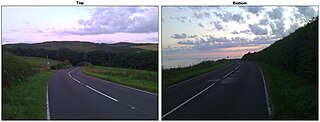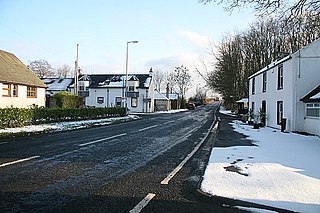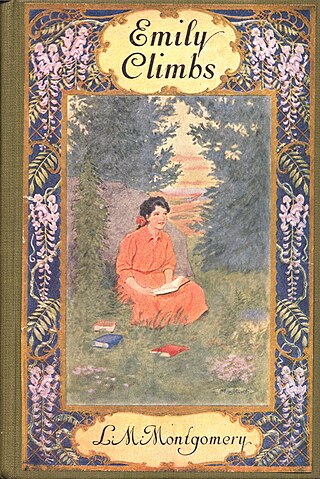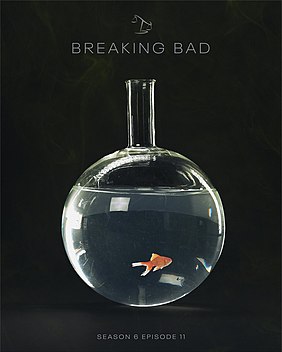
Celtic music is a broad grouping of music genres that evolved out of the folk music traditions of the Celtic people of Northwestern Europe. It refers to both orally-transmitted traditional music and recorded music and the styles vary considerably to include everything from traditional music to a wide range of hybrids.

Skara Brae is a stone-built Neolithic settlement, located on the Bay of Skaill on the west coast of Mainland, the largest island in the Orkney archipelago of Scotland. It consisted of ten clustered houses, made of flagstones, in earthen dams that provided support for the walls; the houses included stone hearths, beds, and cupboards. A primitive sewer system, with "toilets" and drains in each house, included water used to flush waste into a drain and out to the ocean.
Dean Village is a former village immediately northwest of the city centre of Edinburgh, Scotland. It is bounded by Belford Road to the south and west, Belgrave Crescent Gardens to the north and below the Dean Bridge to the east. It was formerly known as the "Water of Leith Village" and was a successful grain milling area for more than 800 years. At one time there were no fewer than eleven working mills there, driven by water from the Water of Leith.
Genre fiction, also known as formula fiction or popular fiction, is a term used in the book-trade for fictional works written with the intent of fitting into a specific literary genre in order to appeal to readers and fans already familiar with that genre.
British literature is literature from the United Kingdom of Great Britain and Northern Ireland, the Isle of Man, and the Channel Islands. This article covers British literature in the English language. Anglo-Saxon literature is included, and there is some discussion of Latin and Anglo-Norman literature, where literature in these languages relate to the early development of the English language and literature. There is also some brief discussion of major figures who wrote in Scots, but the main discussion is in the various Scottish literature articles.

Galloway is a region in southwestern Scotland comprising the historic counties of Wigtownshire and Kirkcudbrightshire. It is administered as part of the council area of Dumfries and Galloway.

Eleanor Stackhouse Atkinson was an American writer, journalist and teacher.
This is a presentation of the phonological history of the Scots language.

The Electric Brae is a gravity hill in South Ayrshire, Scotland, where a freewheeling vehicle will appear to be drawn uphill by some mysterious attraction. The phenomenon is an optical illusion.
"Annie Laurie" is an old Scottish song based on a poem said to have been written by William Douglas (1682?–1748) of Dumfriesshire, about his romance with Annie Laurie (1682–1764). The words were modified and the tune was added by Alicia Scott in 1834/5. The song is also known as "Maxwelton Braes".
Andrew Greig is a Scottish writer. He was born in Bannockburn, near Stirling, and grew up in Anstruther, Fife. He studied philosophy at the University of Edinburgh and is a former Glasgow University Writing Fellow and Scottish Arts Council Scottish/Canadian Exchange Fellow. He lives in Orkney and Edinburgh and is married to author Lesley Glaister.

Brae Fell is a fell in the English Lake District, situated 12 kilometres north of Keswick it reaches a height of 586 m (1,923 ft) and is regarded as part of the Caldbeck Fells along with High Pike and Carrock Fell even though it has ridge links to the Uldale Fells. The fell's name has Scottish overtones and translates from the Scots language as a hillside or slope. Its northern flanks face the Scottish Borders country across the Eden Valley and Solway Firth.

The A719 is a local road in Ayrshire, Scotland, connecting Girvan and the Ayrshire coastline with Glasgow via Ayr and Galston. Among other locations it passes the Trump Turnberry golf resort and the hamlet of Moscow.

Emily Climbs is the second in a series of novels by Lucy Maud Montgomery. It was first published in 1925. While the legal battle with Montgomery's publishing company continued, Montgomery's husband Ewan MacDonald continued to suffer clinical depression. Montgomery, tired of writing the Anne series, created a new heroine named Emily. At the same time as writing, Montgomery was also copying her journal from her early years. The biographical elements heavily influenced the Emily trilogy.
The Actes and Deidis of the Illustre and Vallyeant Campioun Schir William Wallace, also known as The Wallace, is a long "romantic biographical" poem by the fifteenth-century Scottish makar of the name Blind Harry, probably at some time in the decade before 1488. As the title suggests, it commemorates and eulogises the life and actions of the Scottish freedom fighter William Wallace who lived a century and a half earlier. The poem is historically inaccurate, and mentions several events that never happened. For several hundred years following its publication, The Wallace was the second most popular book in Scotland after the Bible.

A novel is a relatively long work of narrative fiction, typically written in prose and published as a book. The English word to describe such a work derives from the Italian: novella for "new", "news", or "short story of something new", itself from the Latin: novella, a singular noun use of the neuter plural of novellus, diminutive of novus, meaning "new". According to Margaret Doody, the novel has "a continuous and comprehensive history of about two thousand years", with its origins in the Ancient Greek and Roman novel, in Chivalric romance, and in the tradition of the Italian Renaissance novella. The ancient romance form was revived by Romanticism, in the historical romances of Walter Scott and the Gothic novel.

Cortes is a rural settlement in the Banff and Buchan area of Aberdeenshire, Scotland, situated in the parish of Rathen, 7.8 kilometres (4.8 mi) south of Fraserburgh.
A novelist is an author or writer of novels, though often novelists also write in other genres of both fiction and non-fiction. Some novelists are professional novelists, thus make a living writing novels and other fiction, while others aspire to support themselves in this way or write as an avocation. Most novelists struggle to have their debut novel published, but once published they often continue to be published, although very few become literary celebrities, thus gaining prestige or a considerable income from their work.

The type of romance considered here is mainly the genre of novel defined by the novelist Walter Scott as "a fictitious narrative in prose or verse; the interest of which turns upon marvellous and uncommon incidents", in contrast to mainstream novels which realistically depict the state of a society. These works frequently, but not exclusively, take the form of the historical novel. Scott's novels are also frequently described as historical romances, and Northrop Frye suggested "the general principle that most 'historical novels' are romances". Scott describes romance as a "kindred term", and many European languages do not distinguish between romance and novel: "a novel is le roman, der Roman, il romanzo".

"Breaking Bad" is the eleventh episode of the sixth season of Better Call Saul, the spin-off television series of Breaking Bad. It was written and directed by Thomas Schnauz. The episode aired on AMC and AMC+ on August 1, 2022, before debuting online in certain territories on Netflix the following day. "Breaking Bad" depicts the life of Jimmy McGill, both during his time as lawyer "Saul Goodman" in Albuquerque, New Mexico, and after changing his identity to Gene Takavic and relocating to Omaha, Nebraska.












